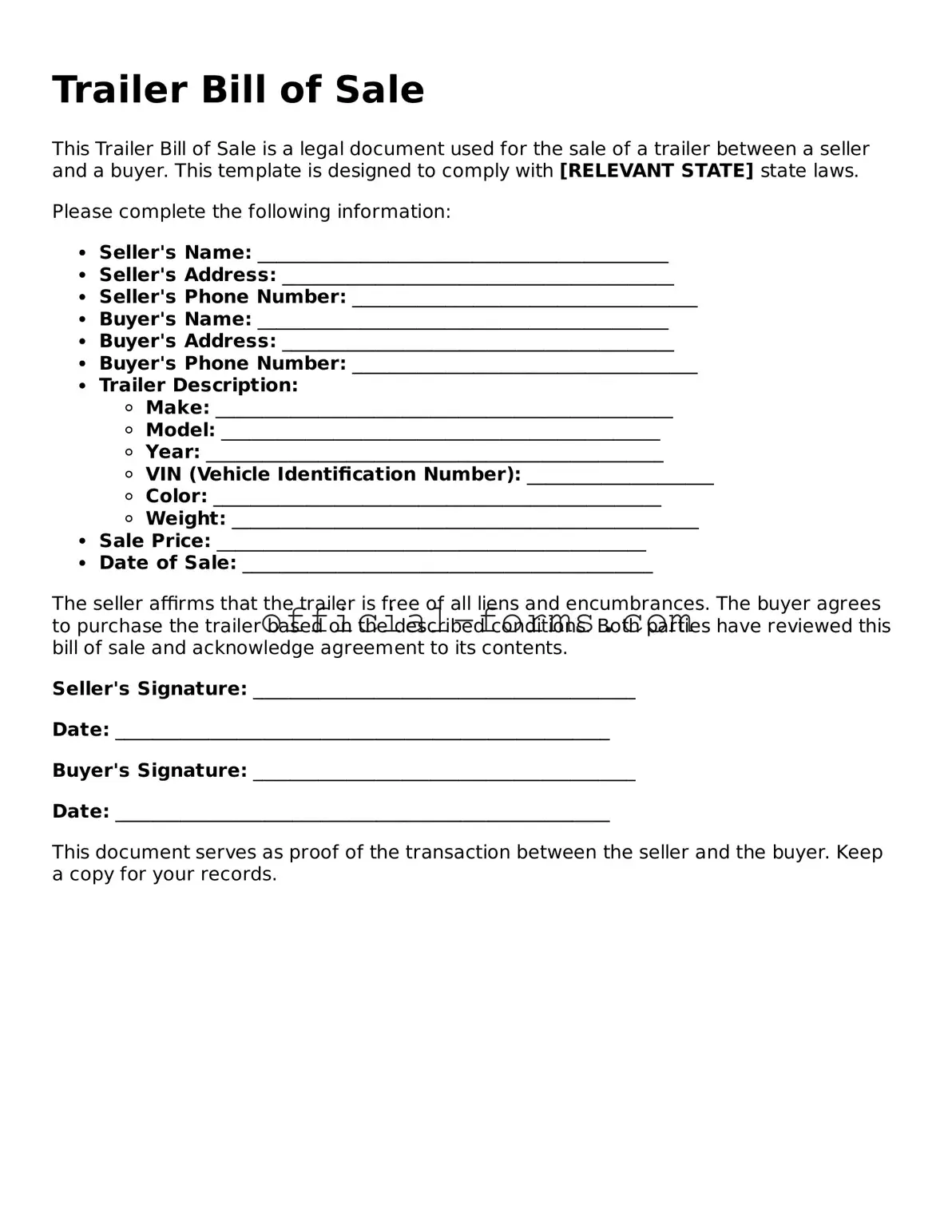Attorney-Verified Trailer Bill of Sale Template
The Trailer Bill of Sale form is a legal document used to transfer ownership of a trailer from one person to another. This form serves as proof of the sale and includes important details about the trailer and the parties involved. Understanding its components can help ensure a smooth transaction and protect both the buyer and seller.
Open My Trailer Bill of Sale Now

Attorney-Verified Trailer Bill of Sale Template
Open My Trailer Bill of Sale Now
Don’t leave your form incomplete
Finish Trailer Bill of Sale online quickly from start to download.
Open My Trailer Bill of Sale Now
or
➤ PDF
